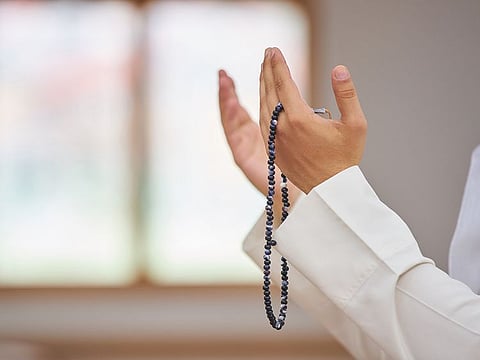Ramadan 2023: UAE residents to fast over 14 hours starting from April 11
As days get longer, the fast duration will also get longer towards the end of Ramadan

Dubai: Starting from April 11, residents of the UAE will be fasting for more than 14 hours a day during the remaining days of the holy month of Ramadan, according Ibrahim Al Jarwan, Chairman of the Board of Directors of the Emirates Astronomy Society.
Al Jarwan added that the fasting period will increase as the days get longer and the nights get shorter towards the end of the month of Ramadan.
However, the exact duration of the fasting period would vary depending on the location, but the difference would not exceed a few minutes.
This year's Ramadan coincides with the spring equinox, which marks the beginning of longer days and shorter nights in the northern hemisphere.
Longest fasting hours
Going purely by Fajr and Maghrib timings expected during Ramadan, the fasting residents of Iceland will have the longest durations daily. On the first day of Ramadan, March 23, the fast will last for 15 hours and 33 minutes. On the expected last day of Ramadan, April 21, the duration between Fajr and Maghrib prayers are 16 hours and 20 minutes. In the MENA region, Algeria will fast the longest on the last day of Ramadan at 14 hours, 58 minutes (as per prayer timings in Algiers).
The holy month of Ramadan commenced on March 23 and will astronomically end on Thursday, April 20, with Eid Al Fitr most likely to fall on Friday, April 21.
Shortest fast
Countries in the southern hemisphere of Earth will have shorter fasting hours of around 11-12 hours. For example, the city of King Scott, Chile will have less than 12 hours of fasting, from 6.35am (Fajr) to 6.27pm (Maghrib). Chile being the southermost country in the world will see some of the shortest fasting times in the world.
Ramadan is the ninth month of the Islamic calendar and is observed by Muslims worldwide as a month of fasting, prayer, and spiritual reflection. The holy month is believed to be the month in which the first verses of the Quran, the holy book of Islam, were revealed to the Prophet Muhammad’s (PBUH).
Ramadan is a time for self-reflection, self-improvement, and spiritual renewal for Muslims. It is considered one of the Five Pillars of Islam, along with the declaration of faith, prayer, charity, and pilgrimage to Mecca.
Sign up for the Daily Briefing
Get the latest news and updates straight to your inbox



